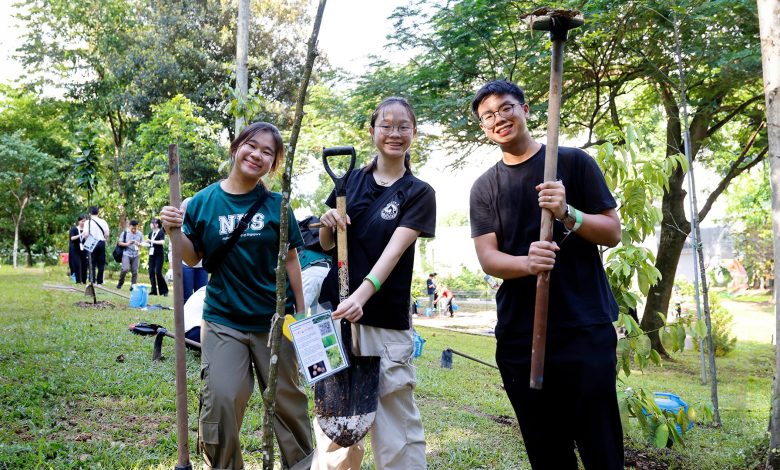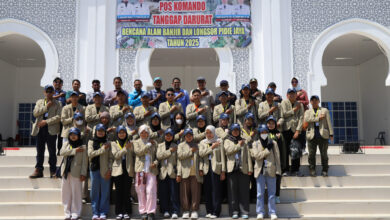Sustainability Initiatives: Exploring Environmental Challenges and Creating the Greenest Campus in Singapore

Sustainability initiatives are crucial in addressing environmental challenges, and the National University of Singapore (NUS) has taken significant steps in this direction.
Sustainability Initiatives at the National University of Singapore
On November 3, 2024, the National University of Singapore (NUS) commemorated Clean & Green Singapore (CGS) Day 2024 with the launch of the Iceberg Series, organized by the university’s University Campus Infrastructure (UCI). This initiative aimed to engage the NUS community in discussions about environmental sustainability, featuring two panel discussions focused on the management of plastic recyclables and campus greening efforts at Kent Ridge, both aligning with climate action objectives.
Panel Discussion on Plastic Waste Management
During the panel titled “Where do our plastic recyclables end up? Closing the plastic waste loop,” Dr. Amy Khor, Senior Minister of State for Sustainability and the Environment, presented Singapore’s strategies for addressing plastic waste, which include the government’s Zero Waste Masterplan. This plan features regulatory initiatives, such as the Beverage Container Return Scheme, designed to enhance recycling rates and reduce waste directed to incineration facilities. Dr. Khor noted that regulatory approaches must be supported by public education and innovations from various industries.
The panel included experts such as Dr. Jovan Tan from the NUS College of Design and Engineering, Mr. Loo Deliang from the UCI Sustainability Strategy Unit, Dr. Adrian Ang from Chye Thiam Maintenance, and Gracia Goh, Co-President of the NUS Students’ Association for Visions of the Earth (SAVE).
Student-Led Initiatives and Waste Traceability
The NUS Zero Waste Taskforce has facilitated a student-led initiative placing trackers in plastic containers used at the university, underscoring the importance of traceability in waste management. This initiative revealed that a significant number of recyclables were being sent to Malaysia, often processed under suboptimal pollution controls. Mr. Loo Deliang indicated that NUS aims to minimize packaging materials and has begun shipping clean PET-1 plastic bottles to recycling facilities in Johor, Malaysia, thereby contributing to a more circular plastic waste system.
Gracia Goh emphasized the importance of youth participation in environmental initiatives, suggesting that discussions can serve as a powerful method for influencing regulatory change.
Greening Initiatives on Campus
In a separate discussion titled “Campus as a real-world living laboratory to tackle climate change,” Mr. Koh Yan Leng, NUS Vice-President of Campus Infrastructure, outlined ongoing greening initiatives on campus. Since March 2024, 49 weather stations and microclimate sensors have been installed throughout Kent Ridge to assess the impact of increased greenery on the local microclimate.
Mr. Koh’s panel included Mr. Steve Teo from the NUS Centre for Nature-based Climate Solutions and Dr. Marcel Ignatius from the College of Design and Engineering. They highlighted the numerous benefits of enhancing green spaces, which are linked to improved health and well-being outcomes associated with urban reforestation.
Tree Planting Initiatives
Dr. Ignatius reported significant advancements in campus tree planting initiatives, with tree canopy coverage rising from 36% in 2019 to 60% in 2024. This increase is expected to alleviate temperature rises and enhance the local habitat through the provision of shade and evapotranspiration. NUS has pledged to plant 100,000 trees by 2030 as part of the National Parks Board’s OneMillionTrees movement.
The 2024 CGS Day also marked the planting of the 50,000th tree on campus, reinforcing NUS’s commitment to sustainability. Mr. Clarence Ti, NUS Deputy President (Administration), participated in the planting ceremony alongside Minister for Sustainability and the Environment, Ms. Grace Fu.
Community Engagement and Future Goals
With over 100 NUS staff and students involved in the CGS Day tree planting activity, the university is advancing its vision of a sustainable and resilient campus. One participant, Ahmad Musa, a Year 3 Life Sciences undergraduate, expressed his dedication to the cause, underlining the significance of tree planting in restoring biodiversity and combating climate change.
In summary, the ongoing efforts of NUS to address environmental challenges through initiatives like CGS Day exemplify the university’s commitment to promoting a sustainable future for both the community and the wider environment.
(Source: National University of Singapore)




